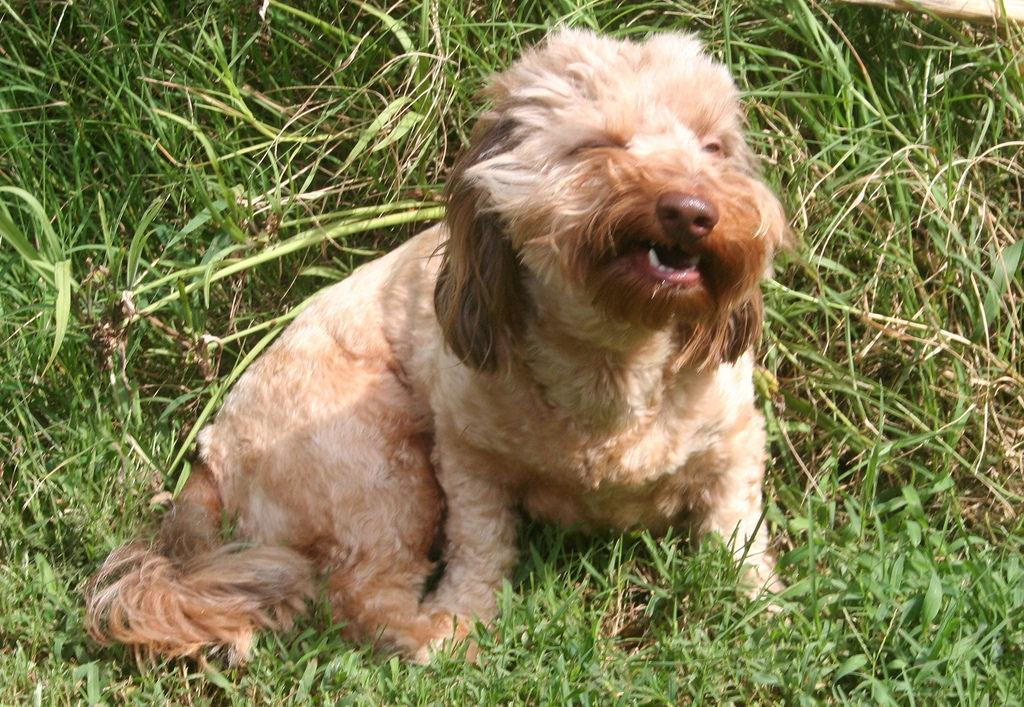Why is My Dog Wheezing/Snorting Like That?
- posted: Apr. 28, 2018
 What is a Reverse Sneeze?
What is a Reverse Sneeze?
You come home from work and greet your dog who is very excited to see you. Suddenly, he starts wheezing and snorting, sounding as though he cannot breathe. What’s going on here? Is your dog in danger? Do you need to rush him to the vet?
More than likely, your dog is experiencing something called a “reverse sneeze.” Reverse sneezing is loud and it sounds really awful, and dogs may look a bit panicked or forlorn when it is happening to them, but, despite the terrible noise, a reverse sneeze is not dangerous. It is no worse than a regular sneeze.
(Link to video of pug with reverse sneeze: https://www.youtube.com/watch?v=ZtIPODy687U)
Thought to be caused when a dog experiences some irritation at the back of the throat, a reverse sneeze most commonly occurs in small to medium sized dogs who are excited. It can also occur randomly without warning or obvious cause. Some dogs with upper respiratory diseases like kennel cough, allergies or conditions like nasal mites (which, thankfully, are rare!) or dogs who may have a foreign body such as a blade of grass stuck in the back of the throat may experience recurrent bouts of reverse sneezing. If your dog experiences repeated, frequent episodes of reverse sneezing, a visit to the vet may be necessary to rule out these causes.
What should you do if your dog has an episode? First, make sure that it is a reverse sneeze. If the episode lasts more than 1-2 minutes, your dog collapses, loses consciousness or seems disoriented, or if her tongue appears purple or blue, this is respiratory distress and not a reverse sneeze. This situation requires a visit to the vet and could be an emergency. However, if the dog is alert, walking around and making the snorting noise for 15-30 seconds up to a minute or two, you can try to stop the reverse sneeze by rubbing the dog’s throat or nose. You don’t have to do anything—the reverse sneeze should stop on its own without any intervention and treatment is rarely needed. If reverse sneezing happens repeatedly, sometimes an antihistamine such as Benadryl may control it. Cats rarely experience reverse sneezing, but it can occur in our feline friends on occasion.
A reverse sneeze can sound quite scary, but it is almost never cause for alarm. However, if you are unsure if your pet is experiencing a true reverse sneeze, or, if your pet truly seems to be having trouble breathing, err on the side of caution and have your pet checked by a vet.
This blog brought to you by the Patton Veterinary Hospital serving Red Lion, York and the surrounding communities.
Source: https://www.petmd.com/dog/general-health/reverse-sneezing-dogs-it-normal
Schedule an appointment with our team of veterinarians today at (717) 246-3611!
Location
Patton Veterinary Hospital
425 E Broadway
Red Lion, PA 17356
